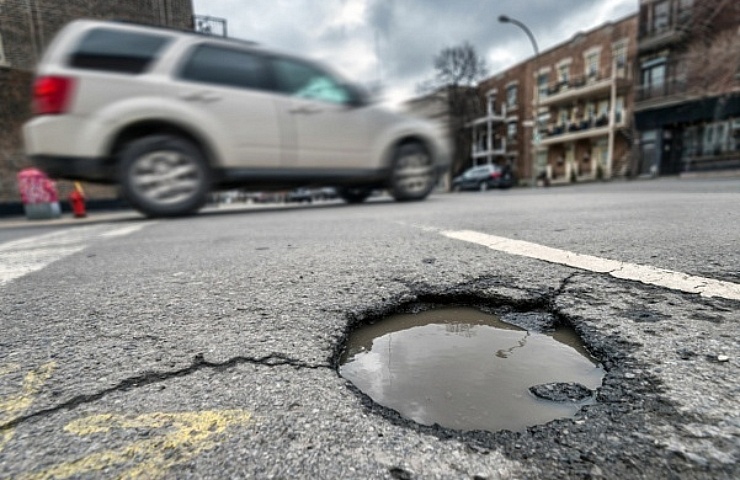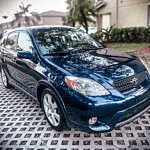Contents
The causes can be anything from dried mud in your wheels to major mechanical problems. A light vibration or shake is usually caused by something relatively simple. But even a slight vibration can cause significant drivability issues.
One of the keys to pinpointing the cause of a shake or vibration is determining when it happens.
Wheels and Tires
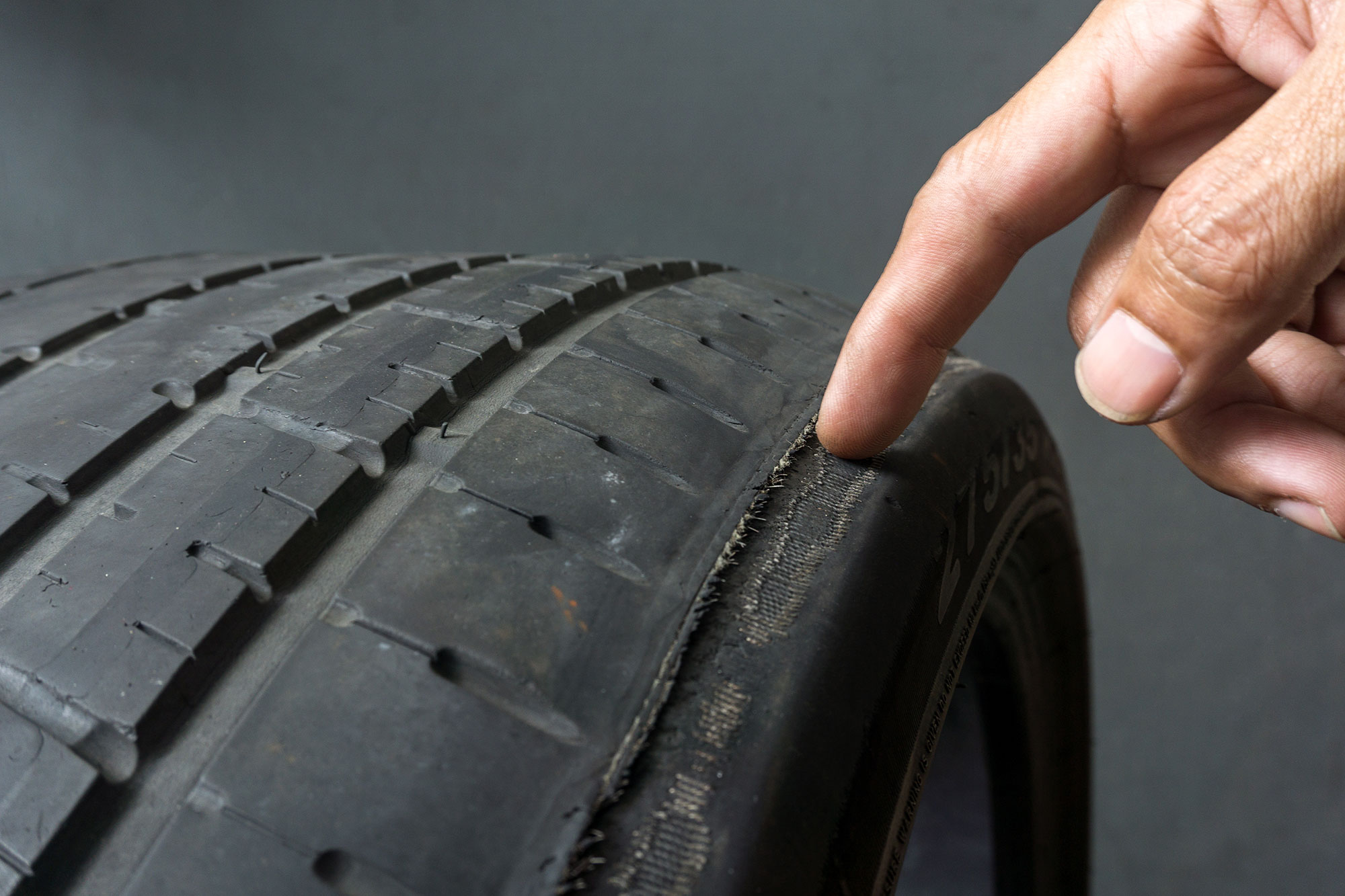
Damaged tire tread is a common cause of car vibration.
The most common source of vibrations is the tires. Uneven wear, bubbled tread, exposed steel belts under the rubber, and sidewall knots can cause a vibration. These can develop into severe issues that result in an immediate blowout. Knots and bubbles, in particular, are emergencies—failure is imminent and will not be pretty.
Uneven tire wear is a sign of suspension issues, so you need to address both problems with new tires and suspension repair. If you pick up a vibration after hitting a pothole or curb, it’s usually caused by a damaged tire or the steering getting knocked out of alignment.
Be a Vibration Detective
After you’ve ruled out the wheels and tires, ask yourself the following questions to hone in on the cause. These questions are progressive. Each one builds on the previous answers.
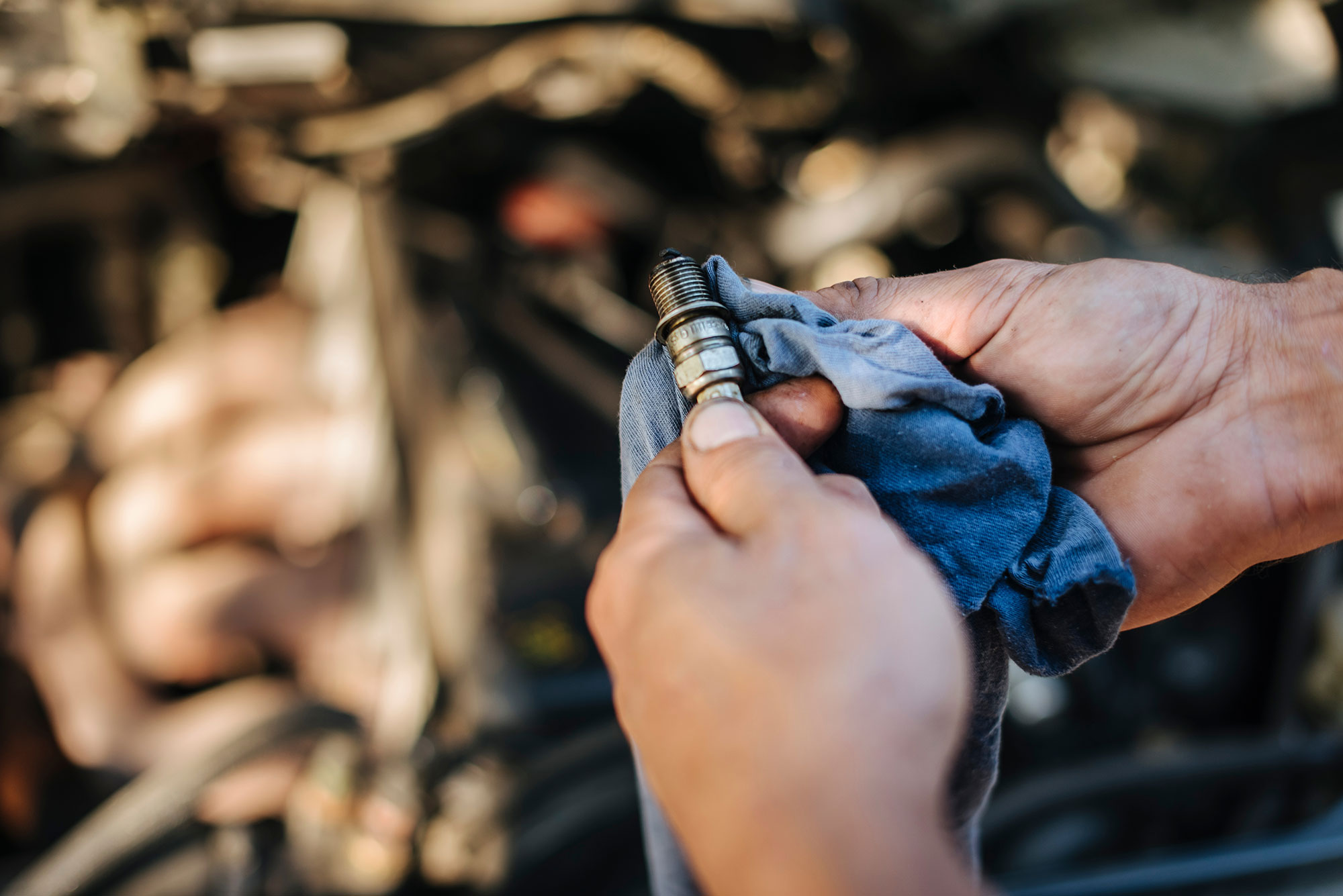
Bad spark plugs can cause your engine to run rough. When your engine runs rough (due to various causes), your vehicle could vibrate.
Does the car shake at idle?
You have a drivetrain issue if your vehicle is shaking or vibrating at idle. If the engine is also running rough—stalling, misfiring, hesitating, etc.—then the cause has likely turned on the check engine light, and you need to scan the ECM to get the codes. Common causes are a dirty fuel or air filter, bad spark plugs, or a failing ignition coil (or other ignition components).
If the engine is running normally but is still shaking at idle, the cause is likely a bad engine mount or transmission mount. When a mount is weak or tears apart, the engine’s movement is not dampened, allowing a lot of vibration. You can check this by having a helper rev the engine while you look at the engine. If it moves excessively, then you probably need new mounts. A bad motor mount can let the engine twist out of the vehicle or damage your other drivetrain components.
Shop now for engine mountsDoes it shake while driving at all times?
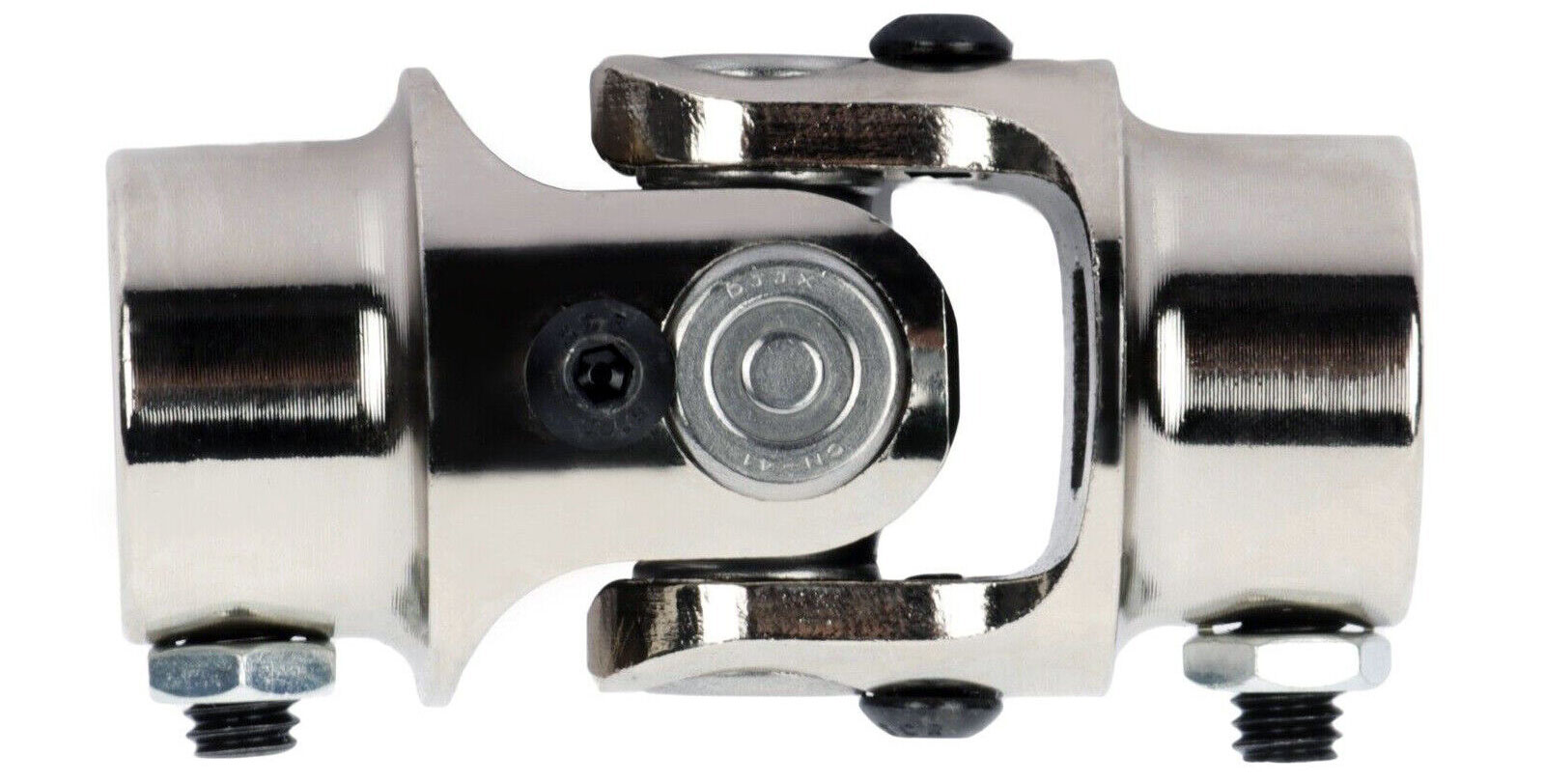
U-joints connect components. You will feel a vibration when they start to fail.
If the tires and the motor mounts are not the issue, you could have a driveline issue. This is primarily relevant to rear-wheel drive vehicles, but front-wheel drive can have similar issues. The driveline, otherwise known as the driveshaft, uses a series of U-joints to connect the components. These are wear items, and you will get a vibration when they start to fail. This can last five days or five seconds before flying apart, so do not ignore this vibration.
You can check your U-joints by getting under the vehicle (always use safety measures) and wiggling the driveshaft at the joints. The joints are likely failing if they move around more than a hair. Be sure to check any carrier bearings (if you have a long two-piece driveshaft, this is the center coupler bearing) and yokes (the ends of the shaft connecting to the transmission and rear axle).
Shop now for bearings and U-jointsAccelerating and Steering
Is the vibration in the steering wheel?
If you feel the vibration in the steering wheel, it is almost always alignment or suspension-related. This can include the front tires.
- If the car pulls to one side or or drifts in its lane, alignment is likely the issue.
- If the wheel shakes while driving in a straight line, it is most likely a tire issue.
Does your car shake while accelerating but not while cruising?
Bent axles, worn motor mounts, or front-wheel-drive axles can cause this vibration. Under hard acceleration, worn CV axles will allow significant vibrations to occur. As the wear progresses, they develop noise and vibrations in other conditions.
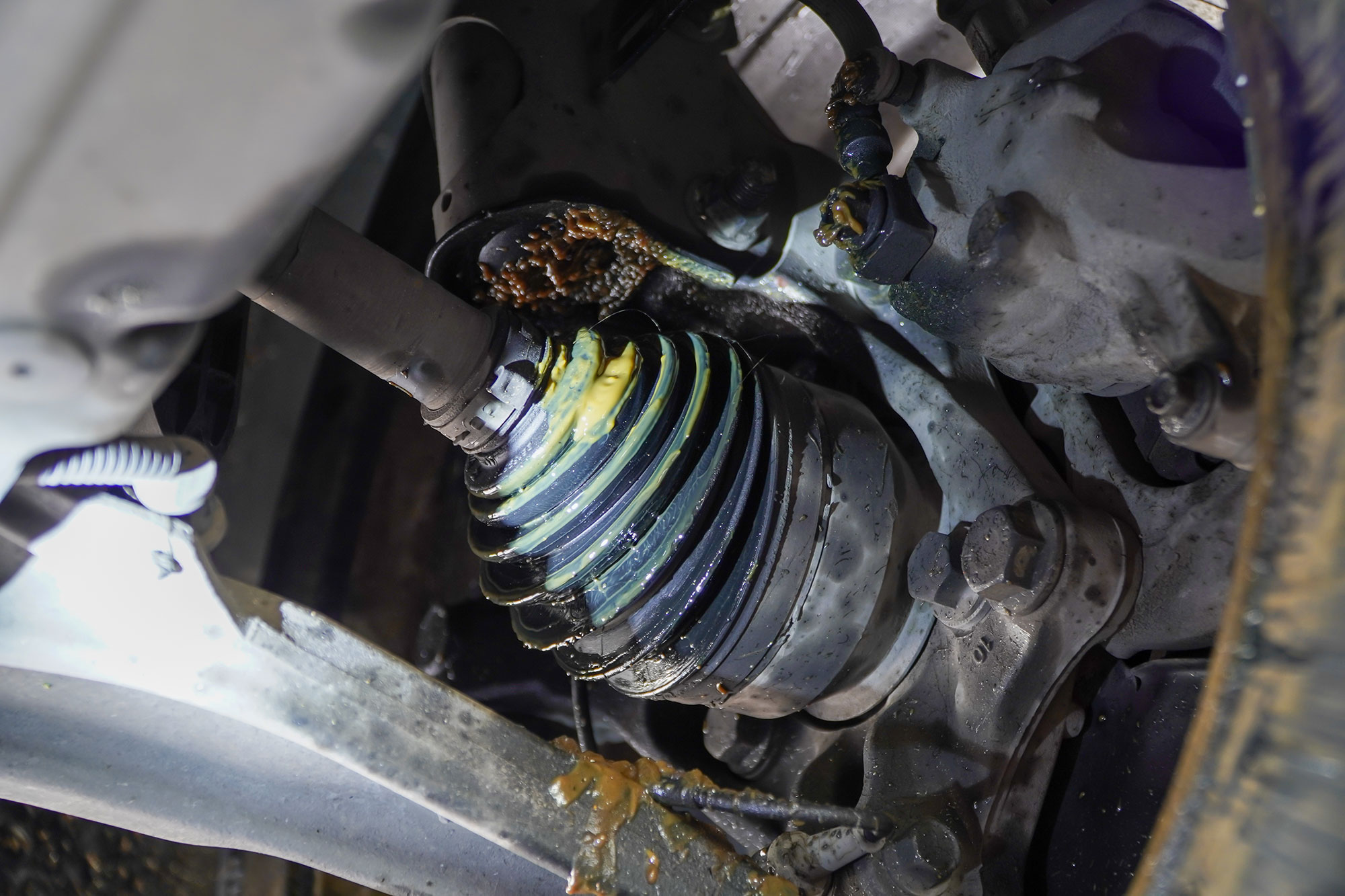
This damaged CV axle boot needs to be replaced. It could be the cause of vibrations.
Does it shake at certain speeds?
If the vehicle vibrates at specific speeds or engine rpm, you likely have one of two common issues: wheel balance or driveline balance.
- Driveline balance comes in at certain engine rpm regardless of speed.
- Wheel balance is an issue at certain speeds irrespective of engine rpm.
It doesn’t take much weight to offset the balance of a wheel. Something as simple as dried mud in the wheels can cause wheel imbalance. Driveline balance requires a professional machine to test and balance the driveline properly. This is less common, but it usually happens after servicing a two-piece shaft assembled 180 degrees from where it needs to be.
The balance weights can also come off, but those are usually welded in place. U-joint wear can also come in at certain speeds but will progress quickly.
Does your car shake when driving over bumps or rough roads?
This might sound silly because, of course, you will have vibrations on rough roads. But if your vehicle shakes worse than usual, you likely have bad shocks, struts, or worn suspension bushings.
Does it vibrate while turning?
If CV joints are badly worn, they will click and shake when turning. Another possibility is worn ball joints or tie rod ends. A bad ball joint will click, and you will feel a pop, especially in high-angle turns or turning onto or from an up- or downgrade to flat roads.
Shop now for shocks and strutsBraking
Is your car shaking when braking?
If the vehicle shakes or shimmies when you apply the brakes, your problem is in the brake rotors, drums, or pads. This can be a sign of a bent axle in an RWD or 4×4 vehicle, but there are usually other vibrations along with bent axles. A warped rotor or brake drum is a serious condition that must be fixed as soon as possible. The rotor can break, locking up the vehicle and making it uncontrollable.
Does it vibrate while coasting with your foot off the gas and brake pedals?
If you let off the gas and have vibrations, this is usually an axle, differential, or driveline issue.
While this guide doesn’t cover every possibility, it covers the most common causes of vehicle vibration. Don’t ignore a vibration in your vehicle until you have determined it is not a significant issue. A loose front valance or under-car cover can cause light vibrations, and while you need to fix those quickly, they likely won’t cause a major catastrophe. Your vehicle should run and drive smoothly—anything else is a sign of a problem.
Shop now for tires
